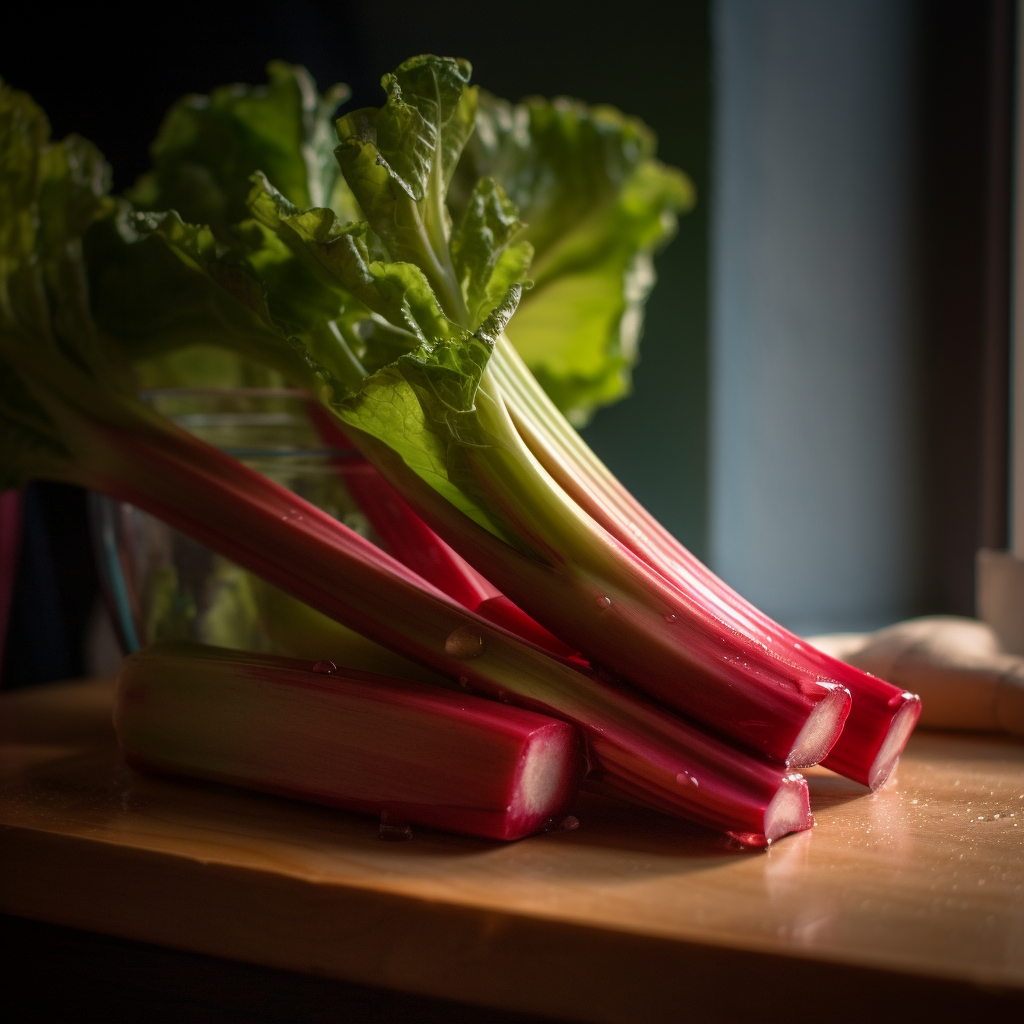Are you feeling uncomfortable, sluggish, and bloated? Constipation can be frustrating and often results in physical and emotional discomfort. Although there are numerous ways to relieve constipation, natural remedies stand out as the most beneficial, especially rhubarb. Rhubarb is known worldwide for its therapeutic properties used in traditional medicine. Its use can be traced back to ancient China, where it was considered a natural, effective purgative.
In today’s world of fast foods, long hours of sitting, and decreased physical activity, digestive problems, especially constipation, are increasingly common. Rather than relying on chemical-based laxatives, it is more advisable to use natural remedies like rhubarb. Rhubarb has a long history of use in traditional medicine, and it’s also commonly used as an ingredient in tasty and healthy recipes. In this article, I’ll share with you the benefits of using rhubarb to relieve constipation, how to prepare and use it, as well as some other tips for maintaining healthy digestion.
The Health Benefits of Rhubarb for Digestive Issues
Rhubarb is a vegetable that has long been used in traditional medicine for its therapeutic properties. Its root and stalks contain powerful compounds that have been shown to help alleviate a variety of digestive problems.
Here are some of the health benefits of rhubarb for digestive issues:
- Relieves Constipation: Rhubarb is a natural laxative that can help relieve constipation. It contains compounds called anthraquinones that stimulate the muscles of the digestive system, helping to move waste through the intestines. A study published in the Journal of Ethnopharmacology found that rhubarb was an effective and safe treatment for chronic constipation.
- Promotes Healthy Digestion: Rhubarb is rich in dietary fiber, which is essential for healthy digestion. Fiber helps to regulate bowel movements and prevent constipation. It also promotes the growth of beneficial bacteria in the gut, which can improve overall digestion and nutrient absorption.
- Reduces Inflammation: Rhubarb contains anti-inflammatory compounds that can help reduce inflammation in the digestive tract. Inflammation is a common cause of digestive problems, such as diarrhea, bloating, and abdominal pain.
- Protects Against Ulcers: Rhubarb contains compounds that can help protect the stomach lining against ulcers. A study published in the Journal of Ethnopharmacology found that rhubarb extract was effective at preventing and treating stomach ulcers.
- Improves Liver Function: Rhubarb has been shown to improve liver function by increasing bile production. Bile is essential for the digestion and absorption of fats in the diet. A healthy liver is also important for overall digestive health.
Incorporating rhubarb into your diet can be an effective way to alleviate digestive issues naturally. However, it’s important to talk to your doctor before using rhubarb as a treatment for any digestive problems. Additionally, pregnant and breastfeeding women should avoid rhubarb due to its laxative effects.
How to Incorporate Rhubarb Into Your Diet for Constipation Relief
Incorporating rhubarb into your diet is a simple and effective way to relieve constipation. Here are a few ways you can easily incorporate this superfood into your daily meals:
- Rhubarb as a topping: Rhubarb can be an excellent topping for oatmeal or greek yogurt, adding a tart flavor to your breakfast.
- Rhubarb in smoothies: Add chopped rhubarb to your daily smoothie for a boost of fiber and vitamins.
- Rhubarb in salads: Chopped rhubarb paired with spinach and added to a salad can not only provide much-needed digestive relief but also make for a refreshing lunch or dinner.
- Rhubarb sauce as a condiment: Rhubarb sauce can be used as a condiment to grilled meats or as a dip for veggies, providing a tasty and fiber-rich side dish for any meal.
- Rhubarb in juices: Juices are absorbed quickly into your bloodstream. Juices give you the opportunity to get quick relief from various body conditions such as constipation. Juices move into your colon quickly to cleanse it and activate peristaltic action.
When incorporating rhubarb into your diet, it is important to keep in mind that the leaves of the plant are toxic and should not be consumed. Stick to the stems when preparing rhubarb-based dishes to avoid any unpleasant side effects.
Overall, incorporating rhubarb into your diet can be a great way to relieve constipation naturally. By adding small amounts of this nutrient-rich vegetable to your meals, you can promote healthy digestion and reduce your reliance on laxatives and other treatments.

